Tempestt Neal
MLSD: A Novel Few-Shot Learning Approach to Enhance Cross-Target and Cross-Domain Stance Detection
Sep 03, 2025Abstract:We present the novel approach for stance detection across domains and targets, Metric Learning-Based Few-Shot Learning for Cross-Target and Cross-Domain Stance Detection (MLSD). MLSD utilizes metric learning with triplet loss to capture semantic similarities and differences between stance targets, enhancing domain adaptation. By constructing a discriminative embedding space, MLSD allows a cross-target or cross-domain stance detection model to acquire useful examples from new target domains. We evaluate MLSD in multiple cross-target and cross-domain scenarios across two datasets, showing statistically significant improvement in stance detection performance across six widely used stance detection models.
Subject Identification Across Large Expression Variations Using 3D Facial Landmarks
May 17, 2020
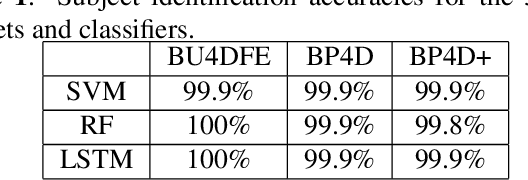
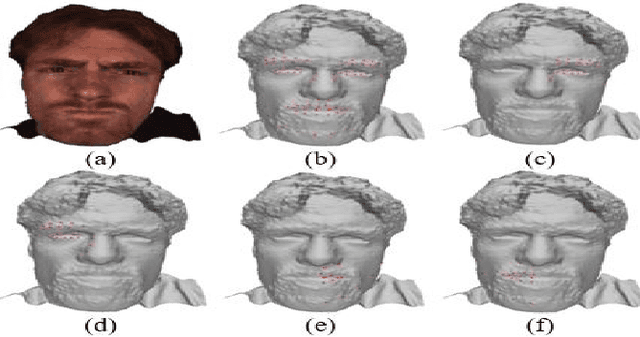
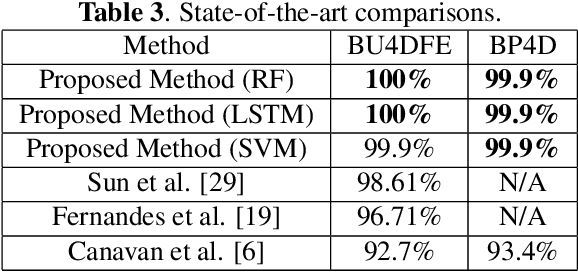
Abstract:Landmark localization is an important first step towards geometric based vision research including subject identification. Considering this, we propose to use 3D facial landmarks for the task of subject identification, over a range of expressed emotion. Landmarks are detected, using a Temporal Deformable Shape Model and used to train a Support Vector Machine (SVM), Random Forest (RF), and Long Short-term Memory (LSTM) neural network for subject identification. As we are interested in subject identification with large variations in expression, we conducted experiments on 3 emotion-based databases, namely the BU-4DFE, BP4D, and BP4D+ 3D/4D face databases. We show that our proposed method outperforms current state of the art methods for subject identification on BU-4DFE and BP4D. To the best of our knowledge, this is the first work to investigate subject identification on the BP4D+, resulting in a baseline for the community.
Studying the Impact of Mood on Identifying Smartphone Users
Jun 27, 2019
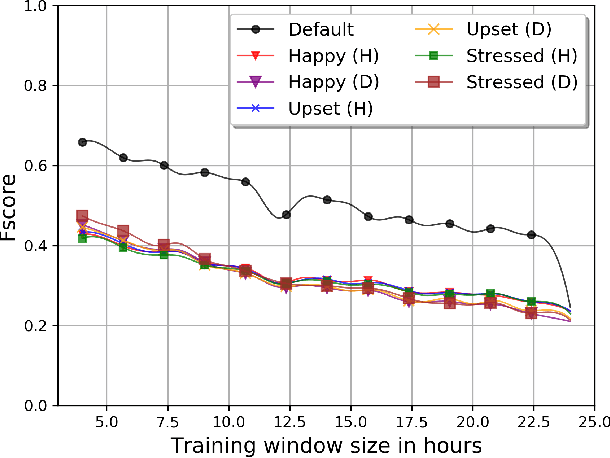

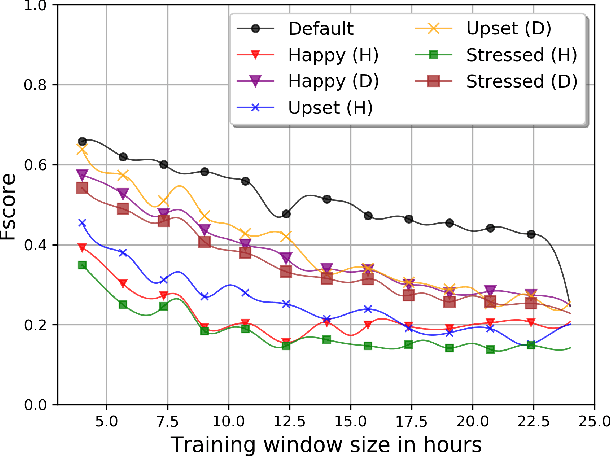
Abstract:This paper explores the identification of smartphone users when certain samples collected while the subject felt happy, upset or stressed were absent or present. We employ data from 19 subjects using the StudentLife dataset, a dataset collected by researchers at Dartmouth College that was originally collected to correlate behaviors characterized by smartphone usage patterns with changes in stress and academic performance. Although many previous works on behavioral biometrics have implied that mood is a source of intra-person variation which may impact biometric performance, our results contradict this assumption. Our findings show that performance worsens when removing samples that were generated when subjects may be happy, upset, or stressed. Thus, there is no indication that mood negatively impacts performance. However, we do find that changes existing in smartphone usage patterns may correlate with mood, including changes in locking, audio, location, calling, homescreen, and e-mail habits. Thus, we show that while mood is a source of intra-person variation, it may be an inaccurate assumption that biometric systems (particularly, mobile biometrics) are likely influenced by mood.
 Add to Chrome
Add to Chrome Add to Firefox
Add to Firefox Add to Edge
Add to Edge